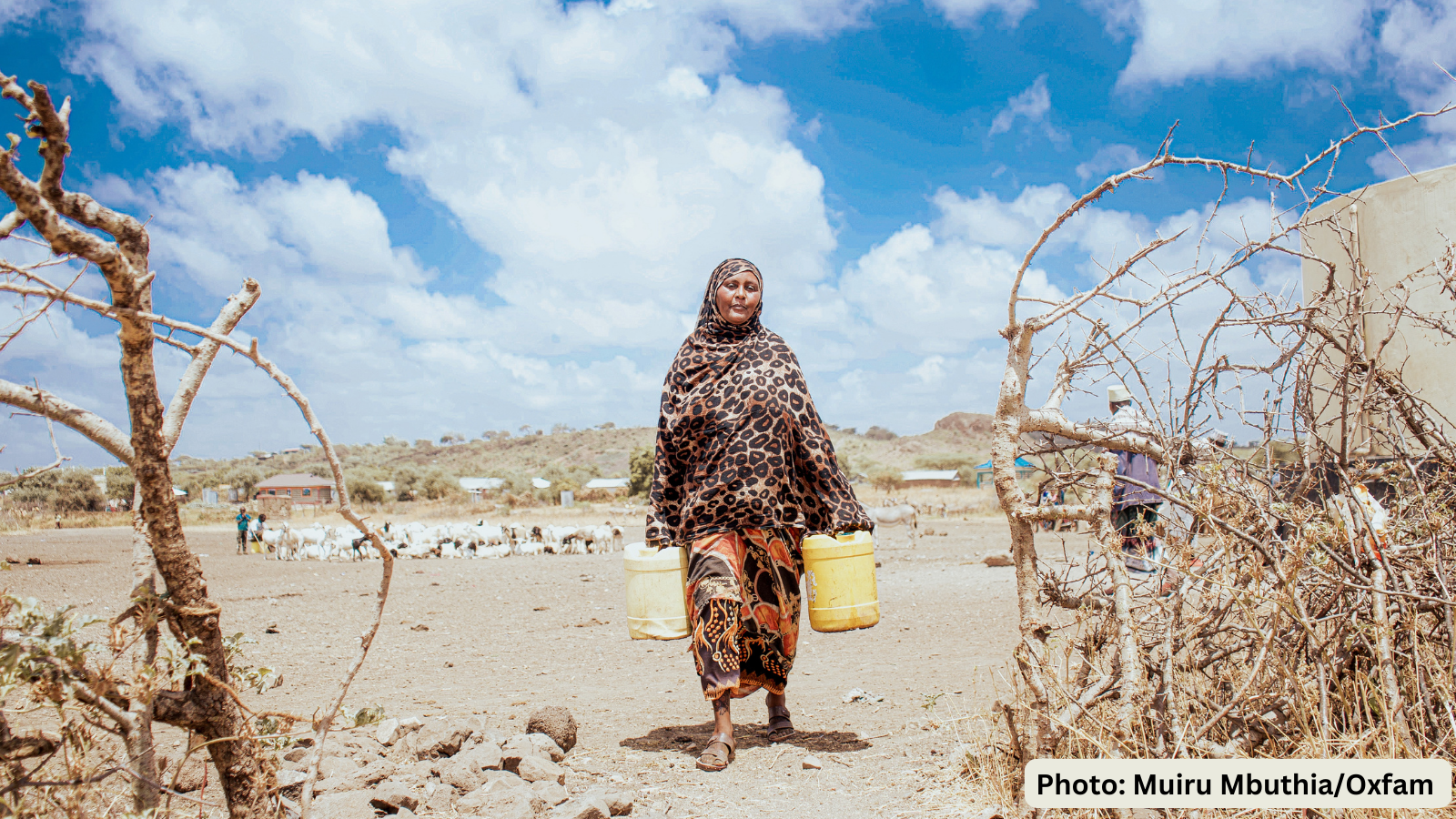By Sebastian Tiah, Country Director of Oxfam in Kenya
In Kula Mawe, Isiolo County, in Kenya’s hot, arid northern region, a long queue forms as both people and livestock wait for the waterhole to open. Many of those in line have walked for hours to get there and will then walk hours to get back home, with huge jerry cans strapped to their backs. Some of the women are heavily pregnant.
For years, water has been a precious commodity, with communities ravaged by a climate-change induced, prolonged drought which has claimed countless lives and left millions of people suffering from malnutrition after losing their livestock.
Water sources have dried up, leading to a surge in diseases and forcing women and girls to walk ever further to find water. When the rains finally came, they came hard, with flash floods sweeping away people and buildings and damaging life-saving water supply systems.
“We watched as the pipes were carried away by the waters,” recalls Halima, who lives in Kula Mawe. “Life is a challenge for us as far as water is concerned.”
Halima is one of millions of people in low-income countries who are being hit first and worst by a climate crisis they did little to cause.
In recognition of this deep injustice, over two years ago and more than 6,000 miles away at the UN’s global climate summit COP26 in Glasgow, the Scottish Government became among the first in the world to pledge dedicated funding to communities facing loss and damage caused by climate change. It has now distributed £1 million of that money through their Humanitarian Emergency Fund.
In Kenya, Oxfam’s using some of it to work with the ASAL Humanitarian Network and our other local partners to repair and restore critical water systems, while giving communities the power to spend on what matters most to them.
It’s money communities have told us has come in the nick of time. Halima’s priority is fixing the existing water borehole and building a new one, providing separate drinking sources for livestock and a shorter trip to find precious water.
The funding is also bolstering community-based peace committees to address a less tangible, but dangerous climate damage: the loss of peace caused by surging competition for scarce resources.
But much more is needed.
Halima’s wait for water mirrors the world’s desperate wait for climate justice.
While the Scottish Government’s global leadership on loss and damage funding is commendable, like other rich nations, it’s failing to cut its own emissions quickly enough.
Now we hear Ministers plan to shift the goalposts on Scotland’s future targets; it’s the sort of climate capitulation that won’t just cost political careers, like the First Minister’s, but lives.
Rich countries must drive down their own emissions while quickly learning from early projects like the one here in Kenya and scaling up their funding.
New funds could be raised through common-sense taxes on obscene fossil fuel company profits and the billionaires who are disproportionately driving climate chaos.
Their payment to communities here in Kenya, and beyond, is painfully overdue.
